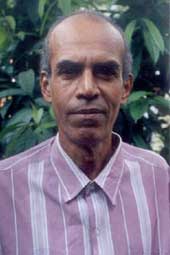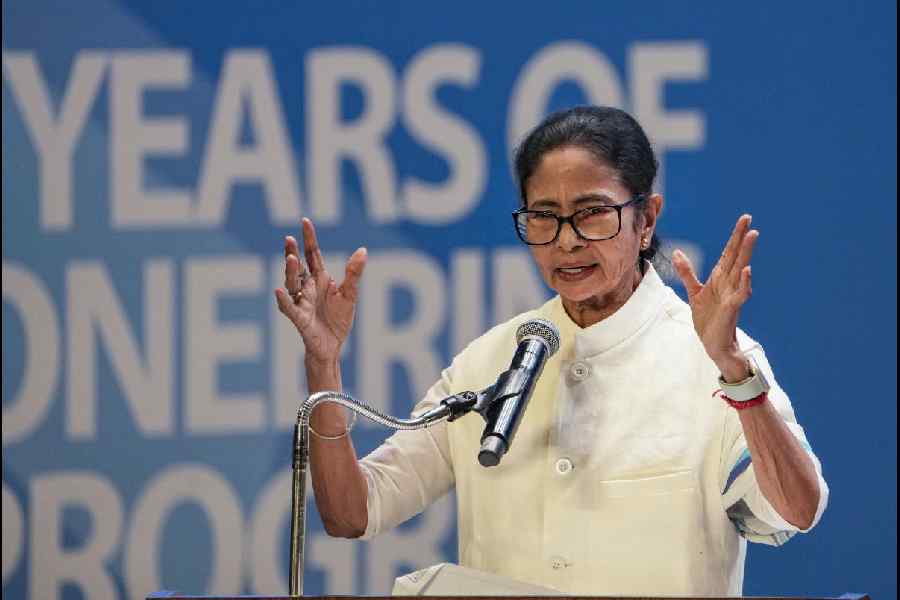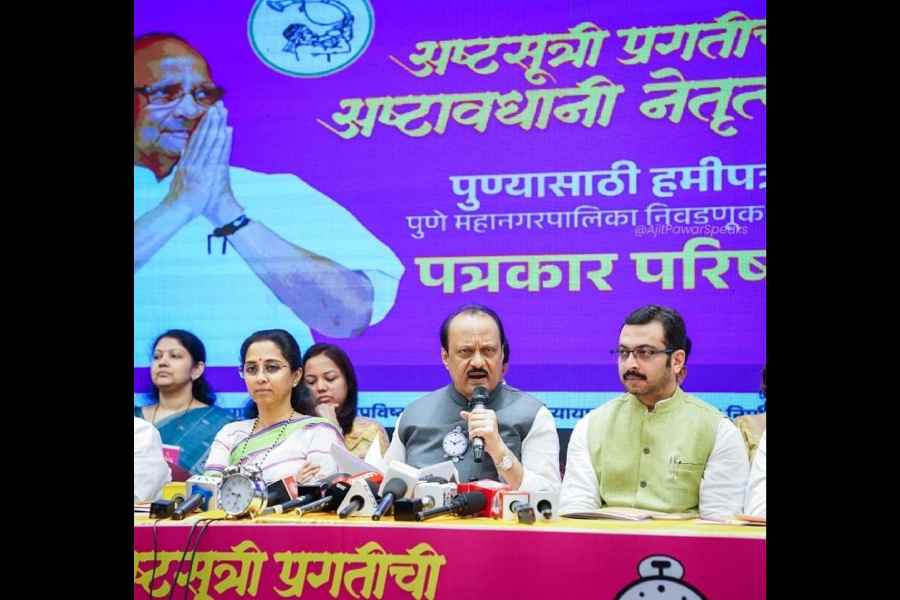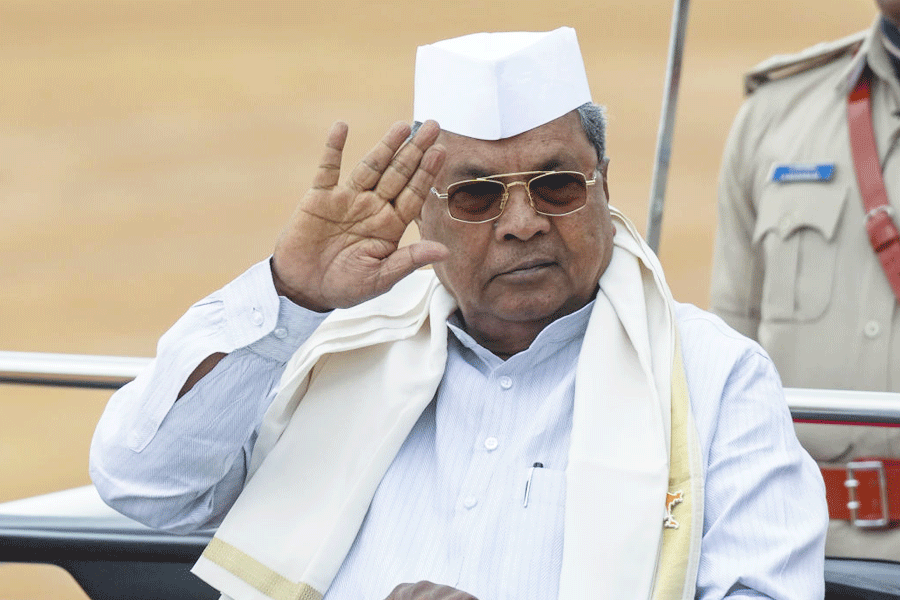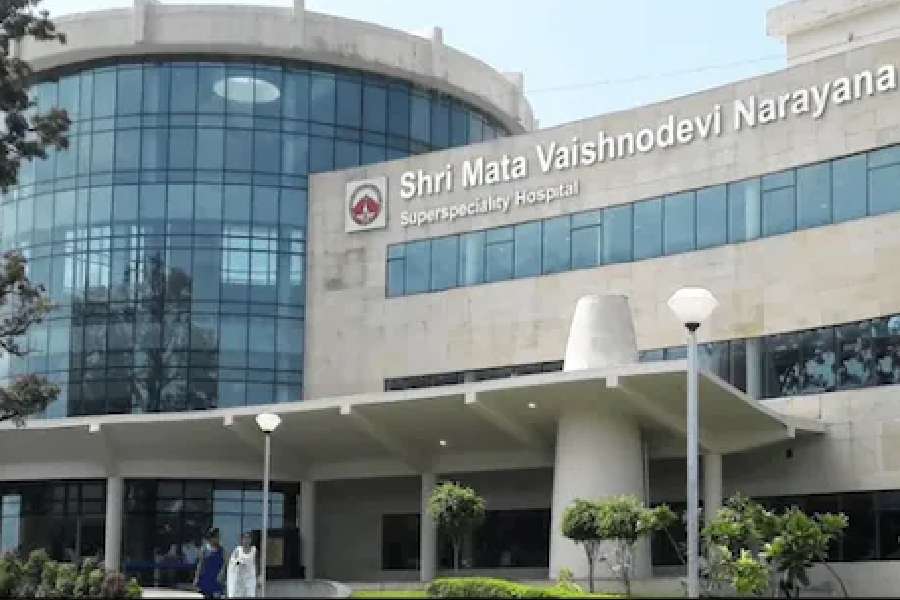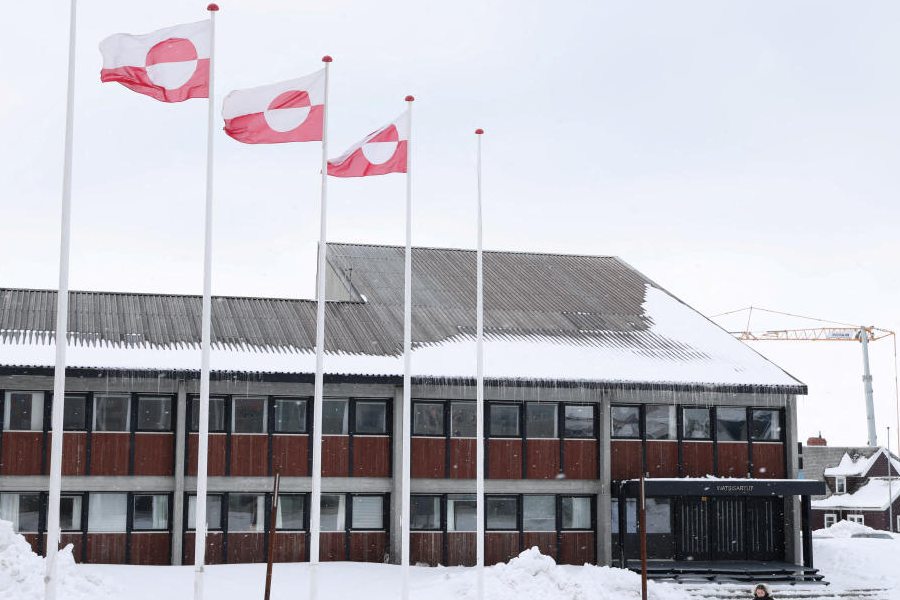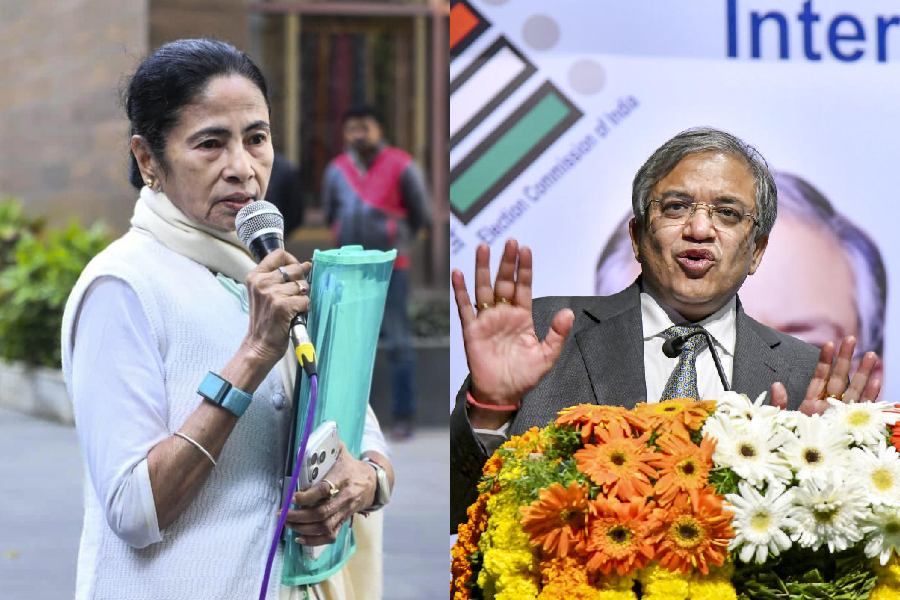 |
Kumud Kundu Chowdhury
He mortgaged his tiny plot of paddy land — his sole possession — two years ago to get his daughter married. His works remain unacknowledged. Yet Kumud Kundu Chowdhury is planning a “language movement” to further develop tribal Kokborok language, for which he has sacrificed his whole life.
Originally from Calcutta, Kundu Chowdhury has made Tripura his home over the past three-and-a-half decades. “When I was living in Lembuthal village in Bishalgarh subdivision in 1969, the tribals there took a liking to me and negotiated my marriage to Phulkumari, a tribal girl,” says Kundu Chowdhury. Pecuniary problems continued to haunt him right from his marriage and merely for the sake of the family’s survival, he worked on jhum (shifting cultivation) and cultivated his tiny plot of one kani paddy land alongside his wife.
But his dedication to Kokborok language and its development remained unaltered. Currently earning his livelihood as a linguist in Tripura University, Kundu Chowdhury wistfully reminisces his childhood days. “I was born on December 24, 1941, in Khajra village on the banks of fabled Kapotaksha river in Khulna district of present Bangladesh. My only childhood memory is our visits to Sagardari village, the birthplace of great poet Michael Madhusudan Dutta, 50 km upstream, on the occasions of annual fairs,” he says.
The happiest part of Kundu Chowdhury’s life ended in 1960 when as a matriculate he migrated to India with his family. He later appeared for MA in Comparative Philology in 1967 from his new home in New Barrackpore near Calcutta’s Dumdum airport.
A crucial period in Kundu Chowdhury’s life began after this when he started working under late Suhas Chatterjee. Chatterjee had joined as Khoyra professor of Comparative Philology and Linguistics in Calcutta University after a five-year stint as assistant professor in Chicago University.
Both of them set up an institute for studies and research on languages and applied linguistics. The Agartala-based Kokborok Unnayan Parishad later approached them for devising a script for Tripura tribal language Kokborok.
In May 1967, two representatives from the Parishad — Birchandra Debbarma and Mohan Chowdhury — met Kundu Chowdhury and Suhas Chatterjee. Kundu Chowdhury had to make a decisive choice. “I decided to take the plunge and with detailed guidelines provided by Chatterjee, my friend Shyamsundar Bhattacharya of our department and I arrived at Agartala in June 1967,” he said.
For months, the duo moved through tribal-dominated villages in the interiors of Tripura and organised camps to collect data on the words and phonetic aspects of Kokborok. Birchandra Debbarma, Mohan Chowdhury, Alindra Lal Tripura and Jogendra Debbarma helped them in the endeavour. The TUJS by then launched a strident movement for Roman script for Kokborok while the CPM, then in the Opposition, dubbed them “CIA agents”.
Jamatya tribesmen in Jampuijala area of Bishalgarh subdivision also refused help to Kundu Chowdhury. Nevertheless, with painstaking efforts the duo collected data and Kundu Chowdhury left for Calcutta to meet Suhas Chatterjee.
After carrying out extensive research, Chatterjee and Kundu Chowdhury returned to Tripura in December 1968. After holding camps in interior areas of the state again, they devised a modified Bengali script for Kokborok despite opposition from the TUJS.
“The tribals and Bengalis in Tripura have been co-existing over the past hundreds of years and we gave precedence to the bilingual situation here to devise the modified Bengali script,” says Kundu Chowdhury. His labour of love bore fruit in 1972 when Tripurar Kokborok Bhasar Likhito Rupe Uttaran, the first book on Kokborok grammar and phonetics, was published bearing only Chatterjee’s name as author. “I had requested Chatterjee to drop my name for fear of a controversy over my CPI connections,” he says.
The book earned kudos from all quarters and the then Congress government headed by Sukhamay Sengupta as chief minister introduced the language for tribal students up to Class II. The language cell in the state education department also initiated steps to develop Kokborok with help from Kundu Chowdhury.
The Kokborok script issue got politicised after the Left Front assumed power in 1978 in Tripura. Veteran tribal leader and education minister late Dasharath Deb authored a book Kokborok Swurung (Kokborok grammar), which according to Kundu Chowdhury had a “totally unscientific spelling system”.
Between 1983-85, Kundu Chowdhury was in Santiniketan on an Unesco-sponsored project on language. After returning to Tripura, he found himself a victim of political rivalry. He later settled down in Agartala with his wife and three children and survived by working as a supervisor for many projects of Tripura University on a fixed monthly stipend of Rs 1,500.
The Kokborok script issue emerged as a major bone of contention after the Congress-TUJS coalition government came to power in 1988. Tribal youths in Tripura, who were newly converted into Christianity, exerted pressure on the TUJS leadership. The party held a seminar in 1990 and forced a resolution on adoption of Roman script. When the Congress-TUJS coalition captured power in the Tripura Tribal Autonomous District Council (TTADC), all Kokborok books in the modified Bengali script were banned and new books in Roman script introduced, dealing a death blow to the study of Kokborok even by tribal students.
In 1995, when the Left Front recaptured power in the ADC, all books in Roman script were banned and modified Bengali script was reintroduced. A helpless onlooker to the ongoing farce, Kundu Chowdhury concentrated on writing books. His pioneering work Kereng Kothama (Tribal folk-tales of Tripura) came out in 1994 though he had already done a Bengali translation of the first Kokborok novel Hachuk Khuriyo (In the Lap of Hills), authored by late Sudhanna Debbarma. Chowdhury’s books such as Kokborok Bhasa O Sahitya (Kokborok Language and Literature), Kokborok Lipi Bitarka O Banan Bitarka (Controversy over Kokborok Script and Spelling) Kokborok Prabad (Kokborok Proverbs) and Gabeshaker Diary (Diary of the Researcher) sold like hot cakes in successive book fairs at Agartala.
However, Kundu Chowhdury gained little financially. He was working as a linguist of Tripura University on consolidated pay since 1996 and the family budget was supplemented by the monthly salary of Rs 1,000 which his wife Phulkumari Debbarma received as a “skilled worker” in the Handloom and Handicraft Corporation.
Kundu Chowhdury takes satisfaction in the fact that the Kokborok language section of Tripura University has been certified as the best by an evaluation team of UGC. Currently he is working on his magnum opus, a trilingual lexicon on Kokborok, Bengali and English and a book on Kokborok grammar.
His only anguish is that he cannot visit his father-in-law Ganesh Debbarma’s house in quiet Herma village in Bishalgarh subdivision for fear of killing or abduction. “It pains me to think that I cannot visit my favourite village for security reasons. Things have been deeply poisoned over the past decade,” he rues.
Having dedicated his whole life to the cause of Kokborok, Kundu Chowdhury is also frustrated over the plight of the language as of now. “Even tribal students do not want to study Kokborok at school because they have to switch over to Bengali or English from Class VI,” he says.
Kundu Chowdhury is planning a language movement with the help of the state’s tribal and non-tribal intelligentsia to revitalise the study of Kokborok and develop it further. “Like Manipuri, we must launch a movement for inclusion of Kokborok in the Eighth Schedule,” he adds.

